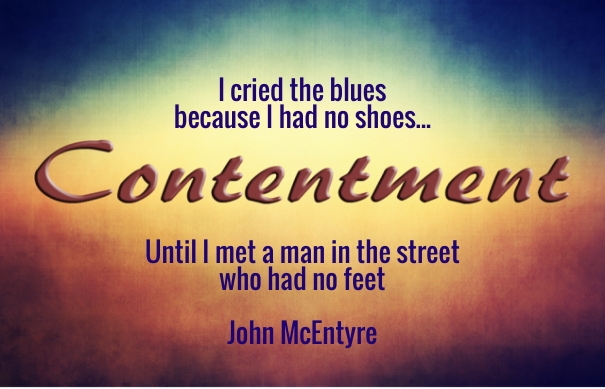This Thanksgiving break, my family attended two wedding ceremonies, a first marriage and a 25th anniversary re-commitment. Both celebrations began with Mass in a church and were accompanied by grand receptions with family and friends. It seems that I've been attending more weddings this year than any I can recall in the past. It has got me thinking about commitment and what it means...
This past January I was privileged to spend some time in India and visit with one of my father's college best friends. We shared a beer in his flat and discussed relationships (as he asked me why I was not married). For starters, I told him that I was raised with an old fashioned upbringing that was incompatible with today's social programming. He laughed and understood that I was referring to "old school" marriage.
A long time ago (in many cultures) property was passed down to the first born son or sons if there was enough land & assets to divide. Daughters were expected to "marry" into their husband's family and become a separate family onto their own. This was not due to misogyny or patriarchy, but simply to preserve what little land & assets a poor person was able to secure in their lifetime. The social hierarchy of the king, his nobles, their vassals, middle and poor classes comprised the kingdom. The distribution of wealth flowed in a cycle from the king on top collecting taxes or 'rent' from his subjects in a similar fashion all the way down to the poor who had to work hard at labor intensive jobs to feed their families.
Many poor families in India marry for survival. The husband typically hustles while his wife tends to the home, children, and cooking details. The children are soon put to work as apprentices or extra pairs of hands to help the family make 'ends meet'. The more affluent classes could afford servants and thus presented a lifestyle with more luxuries. The largest populated classes even in today's culture are comprised of the poor and middle classes each vying to move up in position in order to live more comfortably.
Most marriages were politically driven either in arranged or semi-arranged family alliances. The city of Bombay (Mumbai) was a wedding gift from the Portuguese to the British as a strategic marriage was formed between Catherine Braganza and Charles II. Even within the poor and middle classes, a dowry was given from the bride's family to the groom as a form of compensation of inheritance since the bride typically did not receive family assets whereas her brother(s) did. Families would marry their children to other families with similar status of wealth or power to preserve or grow their collective assets. The idea of a 'love marriage' fell second to family security. In this culture, daughters used their youth (fertility) and beauty as a commodity in exchange for securing or raising their family's status. Son's were expected to govern their inheritance and increase their holdings so as to raise their own status and thus attract the most lucrative romantic prospects.
Today it is not so different. People are always looking for the best companion that they can acquire. Men don't seem to put as much emphasis on a woman's social status as much as they regard her youth and beauty. This is why women typically hide their aging with expensive treatments and make-up (not to mention fashionable clothing, high heels, fake eye lashes, padded bras, and girdles). Most clothing stores and markets are primarily geared towards female consumers. Women seem to want both status and attractiveness in a partner. They typically don't marry men below them in education, wealth, or power. It is interesting to note that while women do care about the attractiveness of their mate, it is not as high a priority for most women if their man has other more desirable qualities such as wealth, status, and power.
We no longer live in an era of feudalism with serfs, knights, and lords; however, we are living in a time like no other era before. In the past century, the USA has eliminated mandatory military draft which once served as a criteria to gain voting rights. Now both sons and daughters may vote, own land, serve in the military, and hold 'equal rights' in education and the work force. In the most ubiquitous effort to balance power between the sexes we have created an imbalance. Men have become effeminate, and women have become like men. The economy of the new sexual market place will ultimately reveal the results.
Competition between the sexes has resulted in high divorce rates and unhappiness. Masculinity used to be defined by a Man's ability to protect, provide, and father healthy children. Society has changed so that Men have become unnecessary in these respects and in some cases vilified (see divorce industrial complex & neo-feminism). There are more women getting an education than there are men. I support furthering one's education, but what that translates to here is that there are more men joining the work force instead of pursuing a higher level education which means that women are passing up these men in favor of equally or higher educated men. There is higher demand for fewer supply.
With modern day contraception (condoms, birth control pills, and the option of abortion) we have changed the playing field especially for women to the detriment of both sexes. Men and women bond differently. For men, shared experiences and the emotions attached to these memories bond more so than the chemical bonding that occurs with women through sex. In the old days, wives had few if any partners before marriage. Due to the possibility of pregnancy, the consequences of extra-marital affairs were enough to deter irresponsible behavior as women faced poverty and low social status. Currently, women enter marriage with higher partner counts (5-10+) which dilutes her ability to pair bond and respect her husband as he has to contend with the chemical & emotional connections she has shared with former lovers. Men carelessly enter into sexual congress with easy women and therefore never find the respect for a woman who holds her body in high self regard. She is considered a prude and is passed over as there are plenty of other women willing to concede. Women who engage in sexuality when they are younger find that withholding sex before a real relationship can materialize are held in contempt by the men they truly want as the reckless 'badboys' of her youth were quickly rewarded with something that these men now have to work hard to earn.
It's a vicious cycle and both Men and Women have to learn to navigate the new marriage contract. The price of commitment has changed. In some ways it has been watered down, and yet a small percentage manage to hold steadily onto their marital vows even decades later offering the hope of sustained commitment. I believe the common denominator for this is faith (read: failthfulness). Both of the wedding ceremonies that I observed began with spirituality before the festivities. The marriage equation seems to work best with surrendering one's ego to a higher power (God) as the head of the union. The next major component is genuine self-sacrifice from both parties. This means putting the needs and desires of one's partner before their own. Marriage is not for everyone and a tremendous amount of maturity, self knowledge, and awareness is needed before embarking on such an enduring commitment.
St Paul wrote that it is best not to get married, but if one cannot contain their 'passions' then to enter marriage with God as the head and submission in each partner's hearts...
― Various
― Homer Simpson








 RSS Feed
RSS Feed
